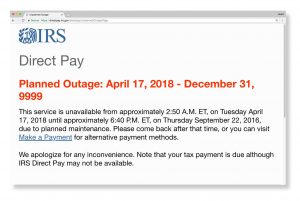The Many Ways in Which Freedom Won the Election.
It is usually hard for many people to find any silver lining around the results of any election headlined by a contest between two presidential candidates who are usually indistinguishable from each other in their hostility to liberty and markets. Indeed, big government was on the ballot and big government won big. However, if you look beyond the presidential horse race,we can find a few reasons for good cheer.
For one thing, I enjoyed watching voters deliver a solid slap in the face to the peddlers of wokeness and hardcore progressivism – that is, to much of today’s Democratic agenda. It was delivered while getting rid of President Trump, which for many is a benefit. I have to admit that I didn’t see those two outcomes coming simultaneously. AIER’s Phil Magness puts it best:
“A complete moron with historically high unpopularity ratings basically fought this election to a draw (or near-draw depending on whatever happens in the counts), and did so facing the most aggressively one-sided media coverage skew against a major party candidate in US electoral history…. The ‘blue wave’ that was touted as a near-certainty by the same media and pollsters less than 24 hours ago didn’t materialize. … Whoever emerges victorious will do so without an electoral mandate, with a divided congress, and with nearly half of the country openly skeptical about the legitimacy of their win.”
Divided government is probably the best thing that could have happened to us this week, especially compared to the alternative of a unified Democratic government. This division, if it materialized, doesn’t mean that no big government policies will get through. Divided government during the Obama presidency resulted in several shameless Paul Ryan/Patty Murray budget deals.
Also, most people welcome bipartisanship but in reality, it is often synonymous with big government policies. So it will be this time around too as I predict the bipartisan enactment of many bad policies. Majority leader Mitch McConnell (R-KY) has already signaled that yet another gargantuan Covid relief bill will get through, in spite of the improved economic conditions. Adding insult to injury, it will contain idiotic provisions such as bailouts for state governments.
Still, we can take comfort in the realization that court packing, the Green New Deal, and other radically statist items on the Biden-Harris-Sanders agenda are, at least for now, off the table. Indeed, we should also celebrate the fact that there is now unlikely to be – at least not through the legislative process – a repeal of Trump’s corporate tax cut. Democrats are now quite unhappy at this unexpected failure of their dreams to materialize.
But the very best news came from the down ballots. Here are a few things deserving loud cheers.
First, in 2020 the war on drugs was finally won – by drugs. Reason’s Jacob Sullum explains here why that is. But I like how CEI’s Ryan Young sums it up: “Oregon decriminalized possession of hard drugs. Five other states legalized marijuana for medical or recreational use, including socially conservative Mississippi. Oregon and the District of Columbia also decriminalized hallucinogenic mushrooms. These are important libertarian victories, and not in the snickering libertine sense. These are victories for the rule of law.”
Second, Illinois voters said no by a 55-45 percent margin to a progressive income-tax scheme. The so-called “Fair Tax Amendment” would have amended the state constitution to replace the flat income tax with a progressive one.
Third, California’s progressives and big-government lovers got kicked in the butt quite forcefully. Proposition 22 passed, thus defeating an effort to reclassify independent contractors who work for platform-economy companies as full-time employees. Rather than overturn the whole provision, platform companies promised to come up with a compromise. Kevin Williamson at National Review explains that
“The new arrangement will keep ride-share drivers as independent contractors but give them wage guarantees for time spent in the car and make them eligible for health-care subsidies.” This compromise is still a big defeat for California’s progressives who believe that the government should be in charge of every single aspect of our lives, including our freedom to work and contract.
Then there’s the defeat of Proposition 16. The epitome of wokeness, this initiative would have reintroduced overt discrimination into government and public institutions by allowing “preferential treatment to persons on the basis of race, sex, color, ethnicity, or national origin in public employment, public education, and public contracting.”
Over at the Grumpy Economist Blog, John Cochrane lists more of the initiatives that were defeated or passed that should please libertarian types. Here are some:
“Prop. 15: Raise property taxes on business. Loses. Prop. 17: Parolees may vote. Wins. Prop. 18: 17 year olds may vote. Loses. Prop. 19: Property tax reduction. Wins. Note, it allows people who have multi-million dollar houses to keep the low property tax base when they move, and pass it on to heirs. So much for “tax the rich.” Prop. 20: Complicated. Stricter parole, crime classification. Loses. Prop. 21: Allows cities to impose rent control. Loses dramatically. (Per Swedish economist Assar Lindbeck, “…rent control appears to be the most efficient technique presently known to destroy a city—except for bombing.”) Prop. 23: Requires onsite physician at kidney dialysis centers. (Pushed by SEIU union.) Loses. Prop. 25: Eliminate cash bail. Loses.”
Will progressives in California learn any lessons from these results? Probably not immediately.The media and the elites learned nothing from the 2016 election. But for now, some pretty awful policies were defeated.
To end on a hopeful note, I will say this: May the utter disaster and election mismanagement unfolding before our eyes in many states right now lead a few people to wonder why on earth they should believe that a government that can’t do something as basic as running an election should possibly be in charge of the rest of our lives.
Veronique de Rugy is a Senior Research Fellow at the Mercatus Center at George Mason University.











